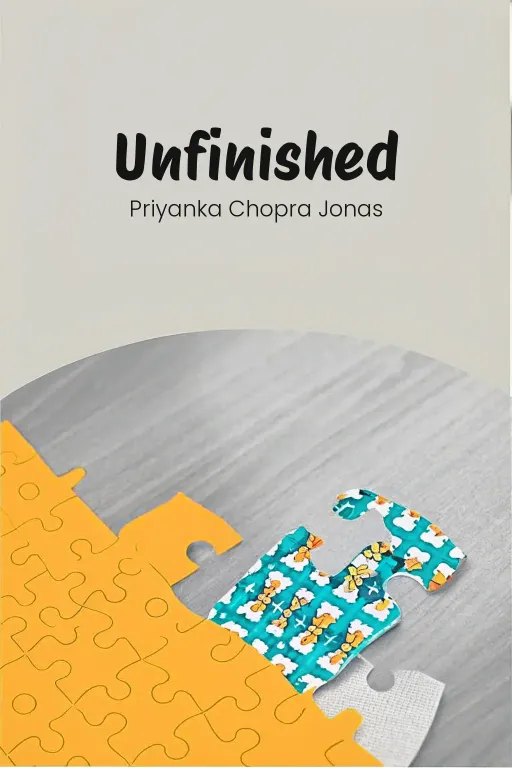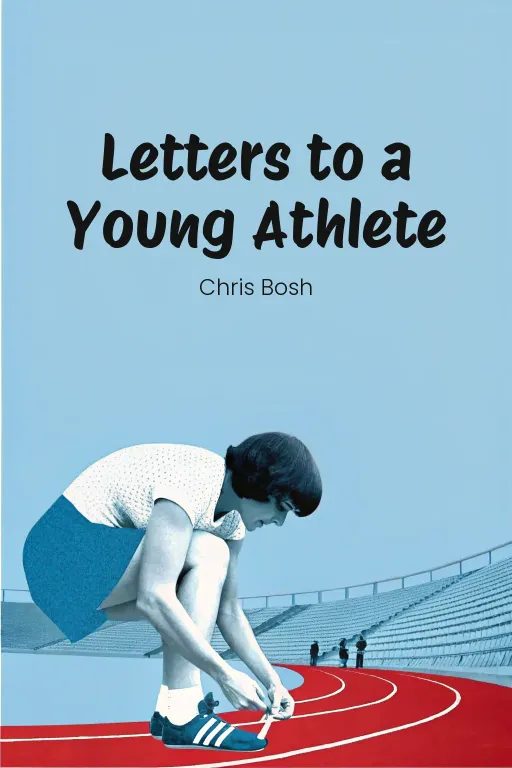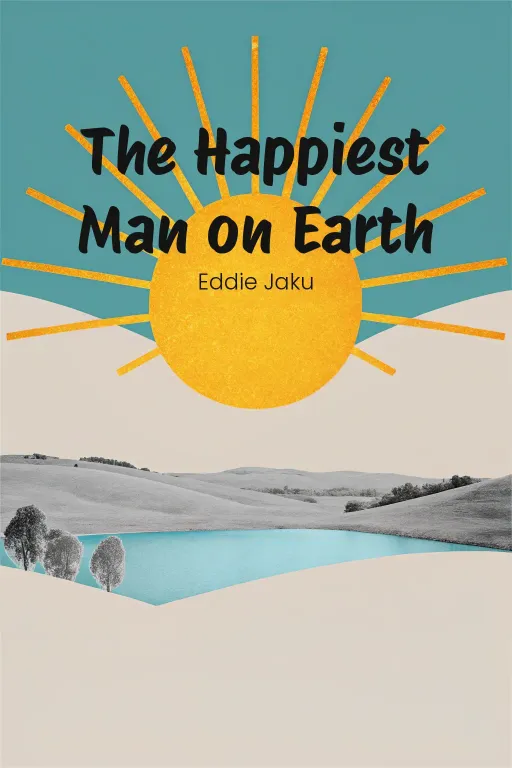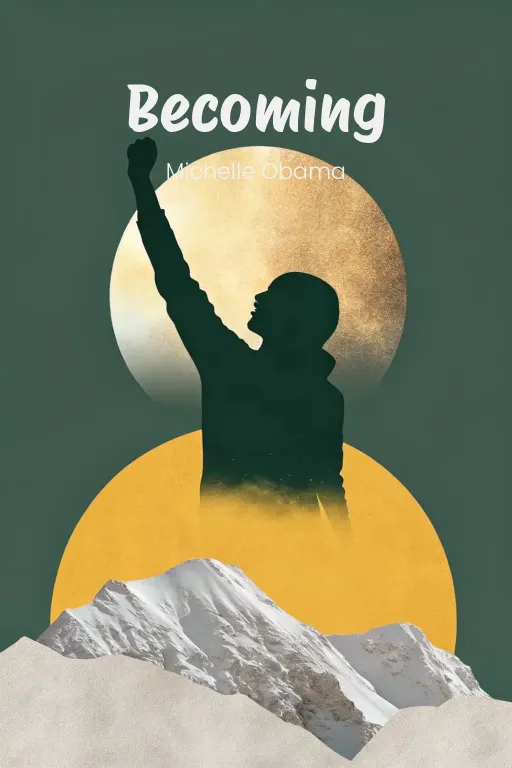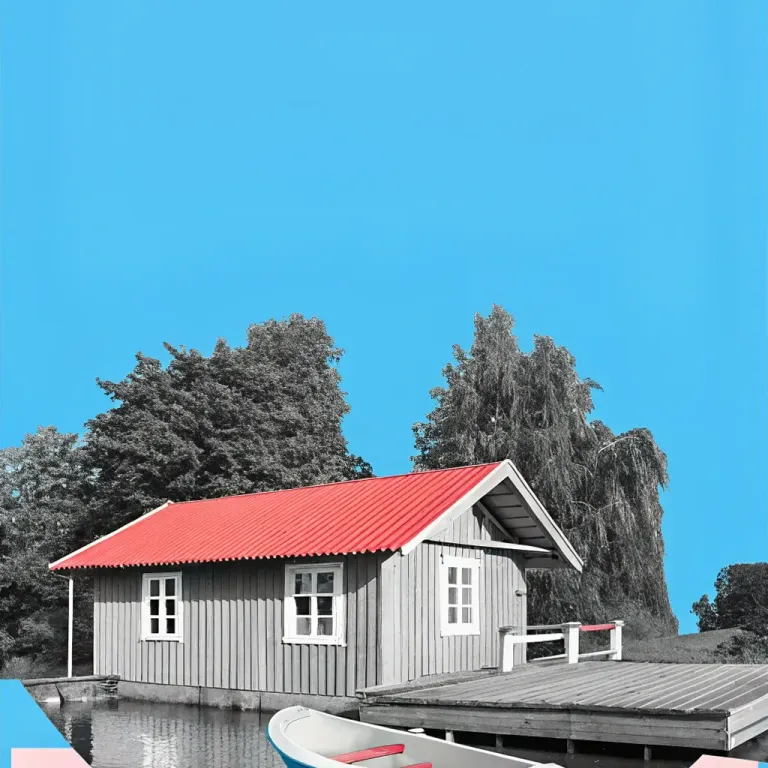
Find Your "Enough": A Life Reset
Podcast by Beta You with Alex and Michelle
Life in the Woods
Find Your "Enough": A Life Reset
Part 1
Alex: Hey everyone, welcome to the show! Ever dream about ditching all the chaos—you know, the jam-packed calendar, the constant buzz of notifications, and…let’s face it, all the stuff we think we “need”—and just holing up in a tiny cabin by a quiet lake? Could you actually do it? Would it set you free, or just…drive you completely nuts? Michelle: Probably a bit of both, right? Let's be real: we're talking no Wi-Fi, no food delivery apps, and definitely no streaming. Suddenly, that lake sounds less like paradise and more like…survival mode. Alex: Exactly! That’s the world Henry David Thoreau immersed himself in in Walden. The book tells the story of his two years living simply next to Walden Pond. His goal wasn't just to escape society; he wanted to understand it better by stepping away. It's part personal story, part philosophical argument, and definitely a love letter to the natural world. Through his vivid descriptions and insightful thoughts, Thoreau challenges our assumptions about materialism, conformity, and even whether we're truly free when we're so tied to what society expects. Michelle: Right, this isn't just about pretty scenery and deep thoughts. The book Walden really gets into some tough stuff – personal freedom, what's right and wrong, and the responsibilities we have to each other as a society. Alex: Precisely. Which is why we’re focusing on three major themes from Walden that still feel so relevant today. First, we’re going to tackle the art of simple living – what does it “really” mean to strip life down to its core? Then, we'll look at Thoreau's deep connection with nature, and how maybe, just maybe, that connection can help us reconnect with something essential within ourselves. Michelle: And let’s not forget his rebellious side: civil disobedience. Thoreau wasn't just some quiet guy hanging out by a pond; he actually believed in actively challenging systems that go against our principles. Alex: Whether you're drawn to the tranquility he found, or his spirit of rebellion, Walden is absolutely packed with lessons, contradictions, and moments that make you stop and think, "How does this even apply to my life today?" Michelle: Or maybe, "Is escaping to the woods actually the answer, or just a nice fantasy we like to entertain while sitting on our comfortable couch?" Alex: Let's dive in and find out!
Simplicity and Self-Reliance
Part 2
Alex: Okay, so let’s dive into simplicity and self-reliance, these are really at the heart of Walden. Thoreau’s incredibly focused on calling out our obsession with stuff and the norms we just blindly follow. He looks around at people just working themselves to death to get these huge houses and fill them with things they don’t even need, and he’s like—why are we doing this? Why do we trap ourselves in this endless cycle? Michelle: Yeah, that line about the “better part of the man” being turned into compost is harsh, right? He's basically saying people are wasting their best years on jobs they hate, just to chase after, you know, bigger houses, fancier clothes, status symbols. What's the point? Is that all there is? Alex: Exactly! Thoreau sees it as this tragic distraction. He's saying this obsession with stuff keeps us from focusing on what really matters: thinking deeply, connecting with nature, expressing ourselves creatively. He totally flips the script on what wealth really is. For him, it’s not about how much you have, it’s about how much you can live without. Michelle: But, critiquing materialism is one thing, actually living without it is another, right? That's where his experiment comes in. He's like, okay, I'm going to walk the talk, build my own cabin, strip life down to the basics, and see what happens when I step off this crazy consumer treadmill. I gotta admit, there's something really bold, even gutsy, about that. Alex: Absolutely. Building that cabin was way more than just finding a place to live. It was a statement. He borrowed an axe, chopped down trees—I mean, he used what was right there. That wasn't just about being practical, it was about taking back control. He wanted to show that getting your basic needs met doesn't have to be this overwhelming, soul-crushing thing. Michelle: Right, and the cabin itself is ridiculously simple: four walls, a roof, just enough room for the basics. It's the ultimate anti-McMansion. But I wonder if he kind of romanticized the whole “self-reliance” thing? I mean, he’s out there chopping wood and boiling beans, but he's also popping over to Emerson’s place for dinner, chatting with people who clearly don’t live this minimalist lifestyle. Alex: That's a fair point. A lot of people bring that up! But I think the cabin wasn't about being totally isolated, or even being a survivalist. Thoreau was making a statement: by making his life smaller, he was cutting out distractions to find clarity. He wasn’t trying to cut himself off completely. For him, it was about living as intentionally as possible, focusing only on what’s essential. Michelle: Still, I wonder if he realized how much his privilege played a role in him even doing this “experiment.” He had access to land, tools, a support system. Most people don't have that. Alex: Absolutely, his privilege is part of the equation. But I think we still need to ask: does that make his message less important? When he talks about the rat race or says we can live—and thrive—on less than we think, he’s not telling everyone to move to the woods. He’s challenging us to rethink what’s important. Michelle: Okay, fair enough. And then there's the practicality of it all. I always think about that part in "Economy" where he lists every single penny he spent on beans, salt pork, and nails. He's saying, look, you don't need to drown in debt to live. But honestly, it reads like a spreadsheet. Was he trying to inspire simplicity or was he writing the first budget manual? Alex: Maybe a bit of both? I think there's a real purpose to his approach. By stripping things down to the absolute bare minimum, Thoreau’s asking: Why do we let excess control so much of our lives? And what do we miss out on by chasing all that stuff? He finds real meaning in simple things, like chopping wood or cooking over a fire. He didn't see those as chores, but as affirmations of being independent and connected. Michelle: I get it. I appreciate the poetry of that. But I keep picturing the folks he talks about, heading off to work, weighed down by expectations. Did they even have the option to “live deliberately”? What if simplicity isn't a choice, but something forced on you by circumstance? Alex: That's so true. And Thoreau does touch on that, actually. It’s part of his critique. He argues that a lot of the burden we carry is self-imposed. We're aiming for lives that look good on the outside, that check all the boxes—status, comfort, stuff—but those things trap us. So simplicity, in that sense, is radical. It’s about taking back your freedom and redefining what success means to you. Michelle: I see why his ideas still resonate today. We're stuck in a gig economy, people are hustling all the time to get more, but they often feel empty. And social media is full of curated images of minimalism—perfect kitchens, tiny houses, yoga retreats—it's like simplicity's become a brand instead of a way of life. Would Thoreau be horrified or just amused? Alex: Probably a bit of both! But his message is deeper than just how things look. He’s challenging us to think less about what we own and more about what we value. And by showing that self-reliance can be empowering and can help us reflect, he offers another way to think about things. It makes you think: What would a simpler, more intentional version of your life look like? Could you live with less—and actually find more in the process? Michelle: Big questions, and clearly ones that are still relevant. Whether we want to chop down trees tomorrow or not, there's something timeless about his critique of a society that thinks “more” always equals “better.”
Connection to the Natural World
Part 3
Alex: So, from simplicity, we move to how Thoreau's “Walden” actually embodies these ideas, specifically his relationship with nature. It wasn't just about escaping society; it was about diving deep into the natural world. And what's so striking is how active his observation was. He found metaphors for life everywhere – cycles, resilience, interconnectedness, you name it. Michelle: Exactly, nature wasn’t just a backdrop for Thoreau, was it? He “really” got into the nitty-gritty, both literally and figuratively. He wasn't just casually watching the trees. He was down on the ground, studying ants or geeking out over melting ice like it was some kind of profound revelation. But, Alex, do you think he saw nature as a guide, or more like a mirror reflecting humanity's condition back at us? Alex: Definitely both. Let’s start with nature as a guide. For Thoreau, immersing himself in nature was crucial for clarity. He believed that the rhythms of nature – seasons changing, animals behaving – these held fundamental truths. Think about his observations of hawks circling Walden Pond. Most of us would just see birds hunting, right? But Thoreau saw it as a symbol of purpose and harmony within ecosystems. These hawks, living in balance with their environment, show us how to live deliberately. Michelle: Right, it's so relatable too. Haven't we all watched a hawk and thought, "They've got it figured out, don't they?" No emails, no bills. But Thoreau takes that observation and “really” elevates it, doesn't he? Alex: Absolutely. He reflects on how the hawks are instinctively in tune with their role, neither under or overestimating themselves. Living deliberately, which is key to his philosophy. And the beauty is, this isn’t just abstract philosophizing; it’s rooted in the simplest realities. He talks about pigeons in a clearing, a mink along the pond. Even those details become part of a broader existence for him. Michelle: Oh, that mink! I love that detail. It’s such a wild critter—scrappy, quick. It speaks to nature's rawness, which you don’t always think about when you picture Walden Pond. Thoreau’s not just painting a peaceful picture, he's showing the grit and resilience of life. Alex: Exactly. It’s that vitality balanced with stillness. And Thoreau embraced those contrasts. His reflections on the seasons are so powerful because of it. Winter is stark, introspective, representing dormancy and preparation. And then spring arrives, with its thawing sandbanks. Spring… he writes about it so euphorically, as if it’s proof that life – and hope – always break through. Michelle: The spring melt! That's one of my favorite parts of “Walden”. The image of sand flowing down the hillside after winter stuck with me. It’s a subtle but potent reminder that beneath hardship, something is always there, building, getting ready to emerge. I mean, talk about optimism woven into the landscape. Alex: Right? The thaw is so symbolic of transformation. For Thoreau, it wasn't just physical; it was spiritual. Those streams of sand held a message about the resilience within us. He’s saying, "Even when life feels frozen, renewal is always possible." Michelle: It’s here that I “really” start to appreciate the depth of his connection. He’s not just watching the seasons change. He’s actively learning from them—reading the land like a book. He ties the fate of ants battling near his cabin to humanity itself. That blows my mind. Who looks at warring ants and thinks, "This mirrors the human condition"? Alex: Thoreau, that’s who! That’s why his work resonates. Through the smallest details – a bird’s flight, an ant’s struggle – he shows us the universality of life’s struggles and triumphs. The ant fight, as brutal as it was, represented perseverance, community, and the tenacity of life, no matter the scale. Nature’s lessons extend beyond just ourselves. Michelle: What’s fascinating is his humility in approaching it. He doesn’t put humanity above nature; we are part of it, subject to the same cycles. His talk about interconnectedness isn’t abstract—it’s grounded in getting his hands dirty. I have to admit, it’s hard to argue when someone finds meaning in something as simple as thawing water or birds circling. Alex: Absolutely. And that's the magic of “Walden”. Thoreau invites us to recognize those moments of stillness and connection, not just as fleeting experiences, but as insights into life’s most essential truths. Every observation – no matter how small – challenges us to reconsider our place in the bigger picture. We aren’t trying to dominate nature, only exist within it as one meaningful thread in a larger web. Michelle: Maybe that’s the most radical part of his experiment. He’s asking us to slow down, look closely, and remember that we're not separate from nature—we’re part of its rhythm, just like the hawks, the rivers, and yes, even the mink.
Critique of Society and Civil Disobedience
Part 4
Alex: So, building on this connection to nature, we really start to see how Thoreau's solitude, his interactions with those occasional visitors, actually reflect his criticisms of society as a whole. Which leads us right into, I think, one of the most compelling parts of “Walden”: his critique of society, and, really, his call for civil disobedience. Thoreau isn't just out there studying nature; his time alone becomes a way for him to examine societal values and structures. And he definitely doesn't hold back. Michelle: Not at all. He's taking aim at materialism, those endless distractions like the news, even the government itself. Sometimes, you almost get the feeling he’s not just stepping outside the system for a bit. He’s wondering if the whole system is fundamentally broken. You know, how we work, how we live, how we govern. Alex: Exactly. He uses his time in the woods to sort of strip society down to its bare bones, doesn't he? Questioning why we let it shape our lives the way we do. He's challenging how we relentlessly pursue wealth, asking, "What value do material possessions really add to our lives?" And then he goes even further, asking "What obligations do individuals have when these societal systems perpetuate injustice?" Michelle: Well, let's start with wealth, though, because I think his critique of materialism is at the heart of “Walden”. You know, I always think of that story about the indigenous basket weaver. This craftsman just assumed creating something beautiful and useful would naturally provide for him. And then he runs headfirst into the reality, that we don't always value the craftsmanship, we value the market for it. Alex: Right! That story really hits home, doesn't it? It's one of Thoreau’s sharpest observations: how society reduces human effort, human creativity, to a simple price tag. The basket weaver thought his skills guaranteed value, but the system just dehumanizes labor, tying worth only to economic demand. Thoreau uses this to caution us, reminding us that chasing material success often means sacrificing our autonomy and fulfillment. Michelle: And, honestly, he really drives that point home with that devastating line: "The better part of the man is soon plowed into the soil for compost.” It's brutal, but he's kind of right. Think about today's burnout culture, working yourself to death for someone else's bottom line. All for what? A big house and a pile of subscriptions you never use? If Thoreau were around today, he'd probably have a podcast called “Minimalism or Bust”. Alex: He so would! But beyond just criticizing materialism, he offers a solution, right? Simplify your life deliberately to regain control. At Walden Pond, he sits down and carefully surveys his needs. I mean, there's something symbolic about how he tracks every penny spent on food, clothing, and shelter. It’s not just about saving money, it’s about proving that once we stop being enslaved to excess, we realize we can sustain ourselves with far less than we think. Michelle: Right, but that raises a really interesting question for modern life: Can most people even afford to step off the treadmill? It’s one thing to say, "I built my own cabin and boiled beans for two years," but in today's world, where rent can eat up half your income, simplicity starts to feel less like a choice and more like a fantasy. Alex: That's a fantastic point, and I think Thoreau understood that tension, even back then. He wasn't naive about the pressures of survival. He rails against the voluntary pursuit of excess. When he critiques his neighbors, it isn't because they're struggling to live; it's because they're voluntarily chaining themselves to work, debt, and consumption that they could avoid. He’s asking, how much of what we work for is actually essential? and how much is society pressuring us to want more than we truly need? Michelle: Which sounds an awful lot like social media today, you know? Constant ads, influencers showing off curated versions of their "simple" lives, all designed to make you feel like you're missing out. It’s materialism disguised as minimalism. You think Thoreau would have had a field day calling out Instagram? Alex: Oh, without a doubt. The rise of "aesthetic minimalism" is exactly what Thoreau was warning about: focusing on appearances over substance. Simplicity was never about style, it was about peeling back layers of distraction to actually see the truth of life. And that moves us into one of his sharpest critiques about society: just how distractions, like materialism or even the news, drown out meaningful engagement with reality. Michelle: Ah, yes, his rant about the news! He just savages our obsession with constant updates. “What news?” he scoffs, pointing out we cling to these trivial headlines that, let’s face it, often don't really change our lives. He's calling us out for doomscrolling centuries before push notifications were invented! Alex: Exactly. He views news consumption as the epitome of mindless distraction. It keeps us busy, anxious, entertained, but not wiser. He contrasts this constant stream of tidbits with the real wisdom that comes from self-reflection and timeless truths. Think back to that Chinese parable he quotes, Kieou-he-yu and Khoung-tseu discussing wisdom: stop accumulating bits of redundant knowledge; focus on improving yourself and addressing your own flaws. Michelle: A bold stance, especially now, when everyone is supposed to be hyper-informed about, well, everything. Thoreau's asking us to really think hard about what kind of information actually serves us and what’s just cluttering up our minds. It's not about dropping out of society, but about being more intentional in how we pay attention. Alex: And that same demand for deliberation leads seamlessly into civil disobedience. Thoreau doesn't just encourage us to live simply or think deeply; he insists we act according to our conscience, even if means going against the grain of society. His refusal to pay taxes because they supported slavery and the Mexican-American War is such a striking example of aligning your life with your principles, isn't it? Michelle: Absolutely. He’s literally saying, “I’d rather go to jail than fund injustice.” Most people would grumble, maybe write a letter, and call it a day. But Thoreau walks the talk—or, spends the night in a cell. I love how he describes it, being physically trapped but spiritually free. He just flips the whole idea of imprisonment on its head. Alex: Right, because for him, the greater prison is actually moral complacency. Paying those taxes might have avoided public embarrassment, discomfort, but it would've betrayed his ethics. His resistance wasn't just about defying authority. It was about demonstrating that individuals have this duty to challenge injustice, even if it comes at a personal cost. Michelle: And his actions weren't just symbolic; they resonate way beyond his cabin. Gandhi, Martin Luther King, Jr.—this idea of peaceful resistance to unjust systems was deeply inspired by Thoreau. His tax protest wasn’t just about him refusing to fund slavery; it set the stage for movements where individuals refused to comply with oppressive systems. Alex: That's the lasting power of his message: ethics over convenience, conscience over compliance. He's asking us to really examine the kind of society we create when we prioritize comfort over justice. And, for me, his refusal to stay silent about systemic wrongs remains one of the most enduring calls to action within his work. Michelle: It really makes you wonder, what are we silently paying for today? What systems do we enable just because it's easier than questioning them? Thoreau wouldn't settle for that. He demanded more from himself and from society. And whether you agree with everything he did or not, you can’t ignore the challenge he poses: Are you living in a way that truly aligns with your values?
Conclusion
Part 5
Alex: So, to sum up our chat today, we’ve really dug into Thoreau’s “Walden”, and how it’s this deep dive into simplicity, connection, and listening to your own conscience. He’s pushing us to cut through the clutter of life, get in sync with nature's flow, and, you know, live intentionally, with real purpose. It’s not just about owning less stuff, but really valuing what counts—our time, our relationships, what we believe in. Michelle: Right. And, you know, Thoreau wasn’t just blissing out in the woods, admiring the scenery. He was seriously critical of society, especially how materialistic and unfair it was – and honestly, still is. Whether he’s calling out our obsession with money, all the distractions we have, or how we turn a blind eye to injustice, Thoreau’s message still hits hard. Simplicity isn’t just about personal freedom, it’s about being morally responsible, right? Alex: Absolutely. And I think “Walden” leaves you with this question that just never gets old: What would your life look like if you got rid of everything that wasn't essential? What would you really see if you slowed down, tuned out the noise, and started questioning the norms that shape your decisions? Michelle: It's a tall order, for sure, but maybe that’s the whole point. Thoreau’s not handing out easy answers; he’s showing you a door and basically daring you to walk through it. Whether you think he's an dreamer, a rebel, or just a guy with a cabin and a strong point of view, his work still challenges us to think about a life—and, yeah, a world—built on what's actually important. Alex: Yeah, exactly! So, as we mentally leave Walden Pond today, I think the big thing to take with you is Thoreau's challenge to all of us: live deliberately, question everything, and don’t be afraid to create a quieter, more authentic life for yourself.


